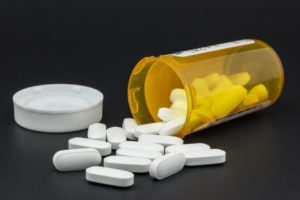 Prescription painkiller addiction has become a growing and serious problem in the United States. A 2017 study conducted by the National Survey on Drug Use and Health found that an estimated 2 million Americans misused prescription pain relievers for the first time within that year.
Prescription painkiller addiction has become a growing and serious problem in the United States. A 2017 study conducted by the National Survey on Drug Use and Health found that an estimated 2 million Americans misused prescription pain relievers for the first time within that year.
While narcotic painkillers are designed to significantly reduce a person’s sensitivity to pain, they can also create a short-lived sense of euphoria. Some people may crave this sensation and become addicted, as they want to experience this feeling more frequently and for longer periods of time. Long-term or misappropriate use of prescription painkillers can lead to physical dependence.
A person can become addicted to painkillers over time; however, there are often tell-tale signs that indicate a growing addiction. They include:
- Feeling the need to use the drug regularly
- Experiencing intense urges that interrupt other thoughts
- Taking more medications than prescribed by a doctor
- Going doctor shopping to find physicians to provide a prescription
- Taking medications longer than prescribed by a doctor
- Seeking other sources such as relatives’ medicine cabinets or the internet to get prescription painkillers
- Afflicting injuries to oneself to attain painkillers
- Continuing to take the medications although they affect job performance, relationships or the ability to carry out routine activities
- Experiencing withdrawal symptoms when attempting to stop drug use
Paying attention to these signs is crucial in getting the necessary help needed. Help can be received in a timely manner; the sooner a problem is recognized. If you or someone you know are displaying these signs, speak to your doctor or a professional who specializes in addiction medicine immediately.
To schedule an appointment with Flushing Hospital Medical Center’s Addiction Service Division please call 718-670-5078.
All content of this newsletter is intended for general information purposes only and is not intended or implied to be a substitute for professional medical advice, diagnosis or treatment. Please consult a medical professional before adopting any of the suggestions on this page. You must never disregard professional medical advice or delay seeking medical treatment based upon any content of this newsletter. PROMPTLY CONSULT YOUR PHYSICIAN OR CALL 911 IF YOU BELIEVE YOU HAVE A MEDICAL EMERGENCY.
